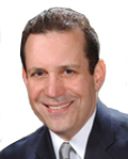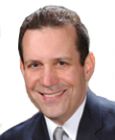
It’s not that modern man cannot believe in miracles; it’s just that he needs to be shown how.
— R. R. Niebuhr
The term “miracle” is often loosely used in medicine to refer to results that are beyond scientific explanation or expectation. For example, thousands of people have had near-death experiences, but scientists have argued that such “life after life” or “life after death” experiences are impossible. Dr. Eben Alexander, a Harvard-trained neurosurgeon, recognized that these reports “feel real,” but are simply fantasies produced by brains under extreme stress.
However, Dr. Alexander’s came under attack by a rare illness and he was shut down completely. For seven days he was in a coma, and when his doctors considered stopping treatment, Alexander’s eyes popped open: He came back!
Alexander’s recovery meets the definition of a medical miracle and probably a definition of miracle by other points of view. However, the real miracle of his story lies elsewhere. He explains that while his body lay in coma, he journeyed beyond this world and encountered an angelic being that guided him into the deepest realms of supernatural existence. There, he says, he met, and spoke with, the Divine source of the universe itself.
Alexander formerly could not reconcile his knowledge of neuroscience with a belief in heaven, God, or the soul. Today, however, Alexander is a doctor who writes in his Proof of Heaven that true health can be achieved only when we realize the active role of God in life, that the soul is real, and that death is not the end but only a transition. Powerful as it is, the miracle is not only about Alexander’s physical temporary healing (as he, like the rest of us, will ultimately pass).
The Greek word thavma (“miracle”) denotes that which generates “wonder,” referenced in Homer and in civilization ever since. The English word miraculum, means “miracle, marvel, wonder,” emphasizing an event without natural explanation.
The person who is spiritually attuned knows God. Soren Kierkegaard wrote, “Prayer does not change God, but it changes him who prays.” The natural (human) cannot know the supernatural (God), but prayer is the supernatural medium by which humans can make contact with God—and be transformed. What do the spiritually attuned accomplish? They exercise their capacity, their potential to know God, which is the transforming miracle of their life.
According to Webster’s Dictionary the primary definition of a miracle is “an extraordinary event manifesting divine intervention in human affairs.” Rationally, it makes sense that if our True Self manifests Divinity in our being then we can believe in miracles and, ourselves, are manifestations of miracles that facilitate the action of God. The True miracle is recognizing our own direction in conjunction with God in our life.
Striking laboratory research in hundreds of scientific studies demonstrates the power of prayer (Koenig and Caleson, 2011), how prayer can be as effective as taking medicine, and why prayer and medicine together are such a potent combination, to reveal groundbreaking scientific evidence to puzzling medical mysteries
As scientists build evidence of the power of prayer in healing, they report such incidents in greater frequency. Not only is prayer improving individual health and lives, but interestingly, prayer for others who may not even know they are being prayed for has been shown to correlate with marked improvements in physical and emotional illnesses. However, such miracles, as well as those performed by science, provide temporary relief.

A Personal Story
When I returned home at age 18 following my first several months at seminary, my sister’s best friend’s brother, Darren, had been brutally attacked by a man with a blackjack for having an affair with this man’s girlfriend. Darren had been left for dead; he was unconscious, with an uncertain prognosis for recovery.
When I entered the hospital room with Darren’s mother, the neurologist, who was leaving, shared with us that he did not think that Darren would come out of this coma, as that two weeks had passed and there had been only limited change. Darren lay there lifeless and thin, with no visible signs of progress.
I embraced Darren’s mother, a very devout woman who was in tears, and I asked her if she wanted to pray. We both knelt. We prayed from the depths of our heart privately for some time. I genuinely felt that our prayers and God’s will could heal Darren. I knew that his mother felt the same.
As we stood up, I said nothing of my conviction about our prayer. I spoke with Darren’s mother for a while and then left. The next day, amazingly, my sister received a call early in the morning that Darren had awoken from the coma. He slowly recuperated, with years of physical therapy and rehabilitation, and eventually more than 90% of his functions returned.
Several years later, my sister went to visit Darren’s mother, who was near death. She told my sister that she and I had once had a very special experience. She said, “When your brother and I prayed that Darren would be better, I could feel the instant that God heard our prayers.” She told my sister that she was forever grateful for that moment and that she wanted me to know that “our special secret” was his life, a thought which comforted her as she was preparing to leave this life.
Over the years, as a psychologist, many patients have shared with me profound moments of being touched by God, miracles in their life. God works through all of us if we let Him. It may feel like the miracle is that event without natural explanation, however, the power of a miracle is the sustaining message of the importance of God’s presence in our life.
John T. Chirban, Ph.D., Th.D. is a clinical instructor in psychology at Harvard Medical School and author of True Coming of Age: A Dynamic Process That Leads to Emotional Stability, Spiritual Growth, and Meaningful Relationships. For more information please visit www.drchirban.com, https://www.facebook.com/drchirban and https://twitter.com/drjohnchirban.




